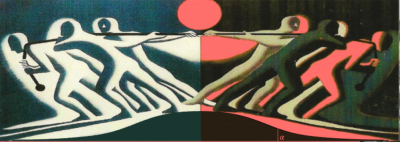Image may be NSFW.
Clik here to view.
The Statistics Wars
and Their Casualties
Postponed to
22-23 September 2022
London School of Economics (CPNSS)
Yoav Benjamini (Tel Aviv University), Alexander Bird (University of Cambridge), Mark Burgman (Imperial College London),
Daniele Fanelli (London School of Economics and Political Science), Roman Frigg (London School of Economics and Political Science), Stephen Guttinger (University of Exeter), David Hand (Imperial College London), Margherita Harris (London School of Economics and Political Science), Christian Hennig (University of Bologna), Katrin Hohl *(City University London),
Daniël Lakens (Eindhoven University of Technology), Deborah Mayo (Virginia Tech), Richard Morey (Cardiff University), Stephen Senn (Edinburgh, Scotland), Jon Williamson (University of Kent)
Panel Leaders: TBA
While the field of statistics has a long history of passionate foundational controversy the last decade has, in many ways, been the most dramatic. Misuses of statistics, biasing selection effects, and high powered methods of Big-Data analysis, have helped to make it easy to find impressive-looking but spurious, results that fail to replicate. As the crisis of replication has spread beyond psychology and social sciences to biomedicine, genomics and other fields, people are getting serious about reforms. Many are welcome (preregistration, transparency about data, eschewing mechanical uses of statistics); some are quite radical. The experts do not agree on how to restore scientific integrity, and these disagreements reflect philosophical battles–old and new– about the nature of inductive-statistical inference and the roles of probability in statistical inference and modeling. These philosophical issues simmer below the surface in competing views about the causes of problems and potential remedies. If statistical consumers are unaware of assumptions behind rival evidence-policy reforms, they cannot scrutinize the consequences that affect them (in personalized medicine, psychology, law, and so on). Critically reflecting on proposed reforms and changing standards requires insights from statisticians, philosophers of science, psychologists, journal editors, economists and practitioners from across the natural and social sciences. This workshop will bring together these interdisciplinary insights–from speakers as well as attendees.
Sponsors/Collaborations:
Main Sponsor: The Foundation for the Study of Experimental Reasoning, Reliability, and the Objectivity and Rationality of Science (E.R.R.O.R.S.)
Organizers: D. Mayo, R. Frigg and M. Harris
Logistician (chief logistics and contact person): Jean Miller
*We expect one or more additional participants
